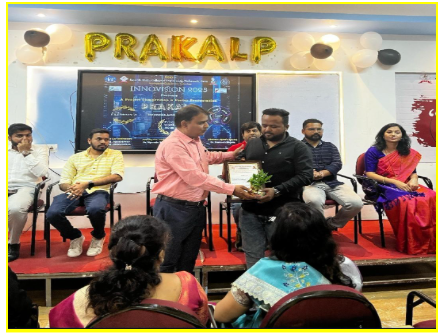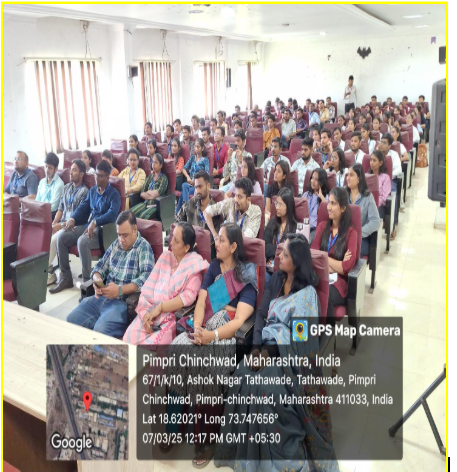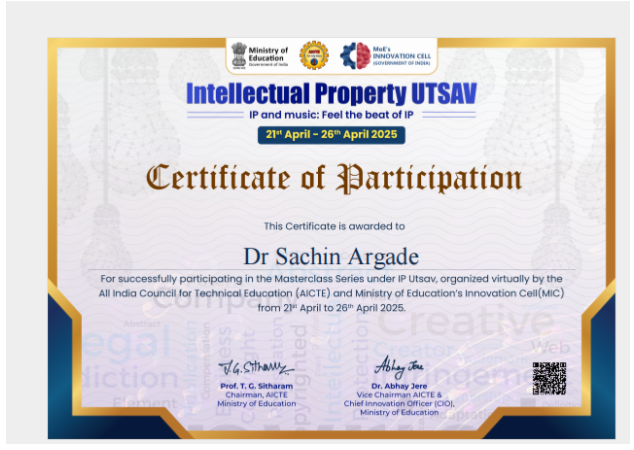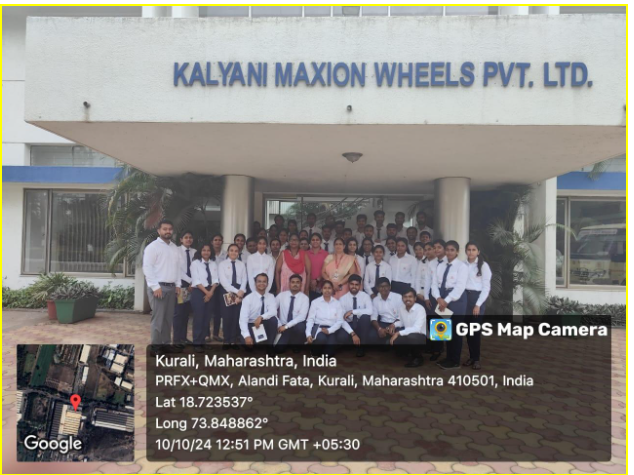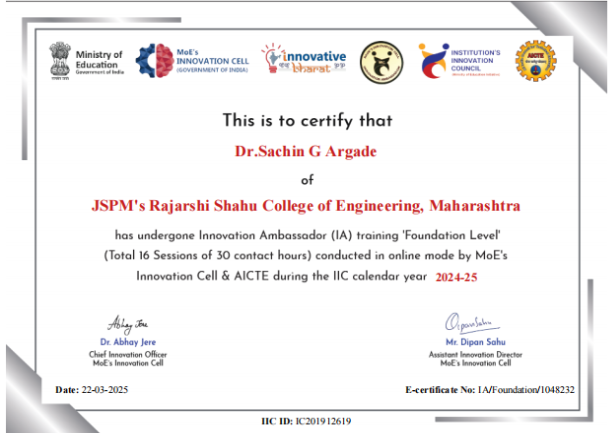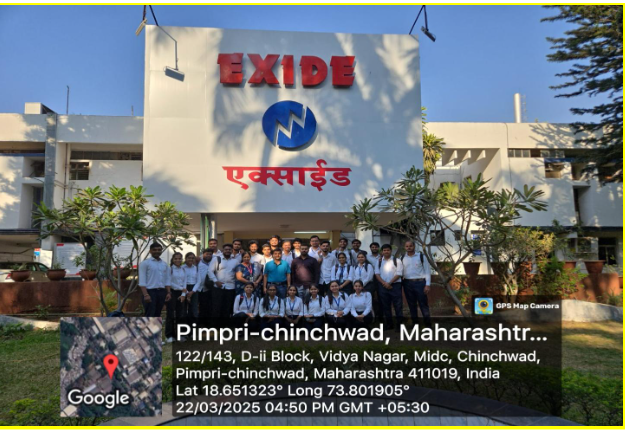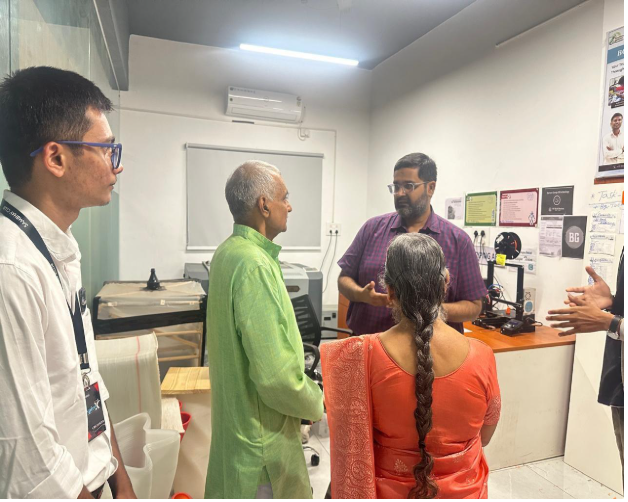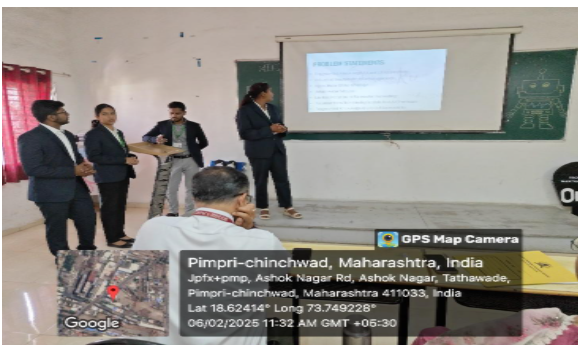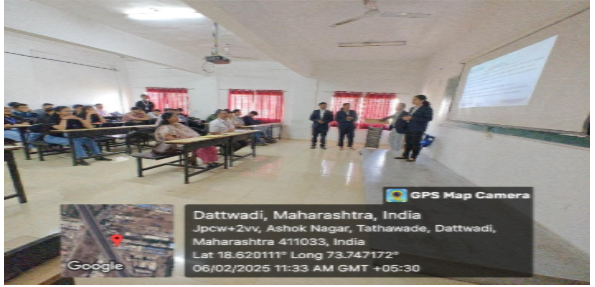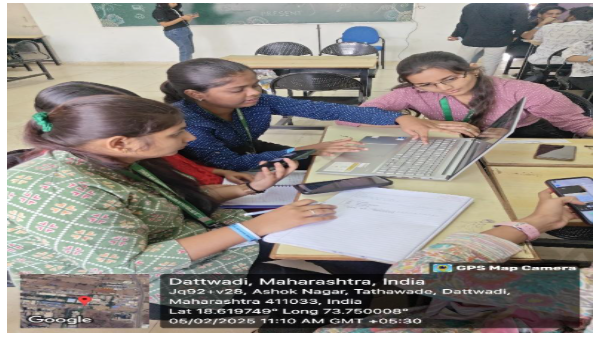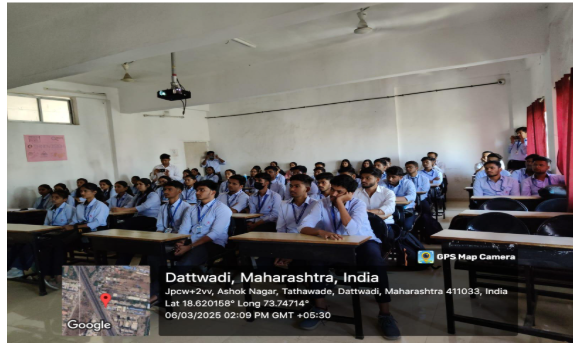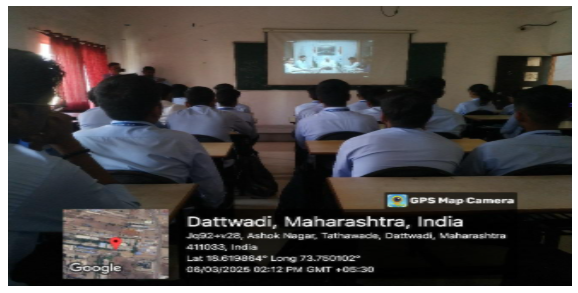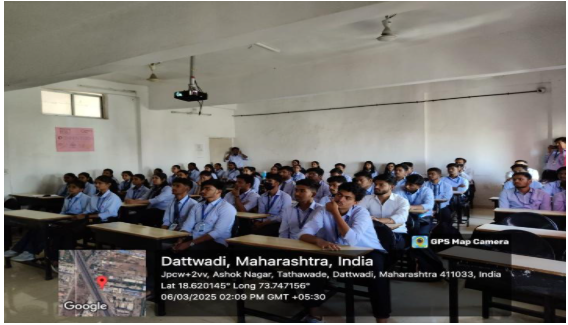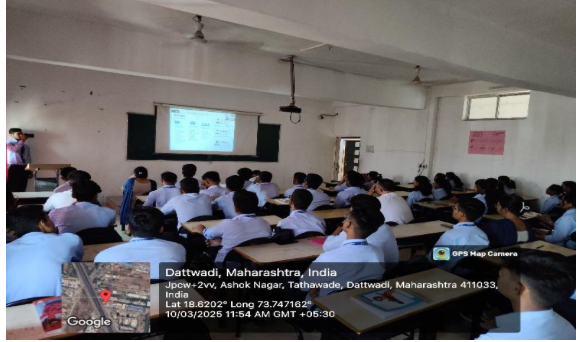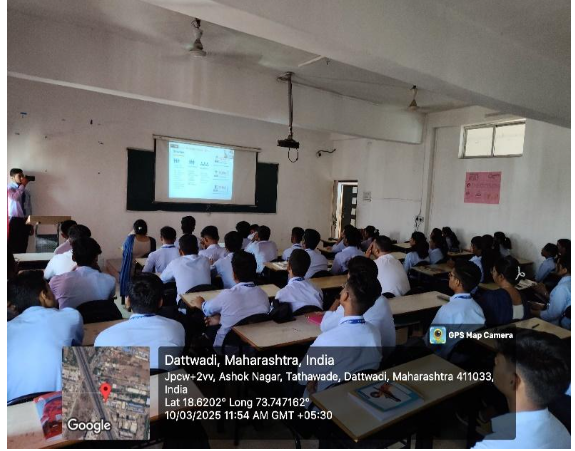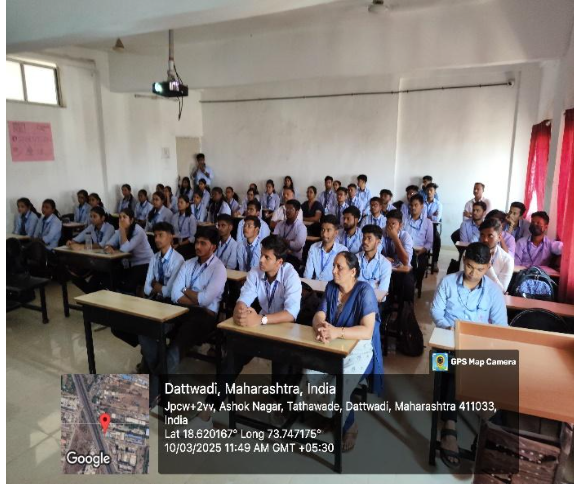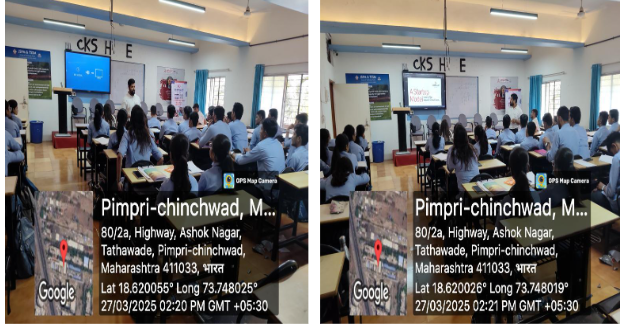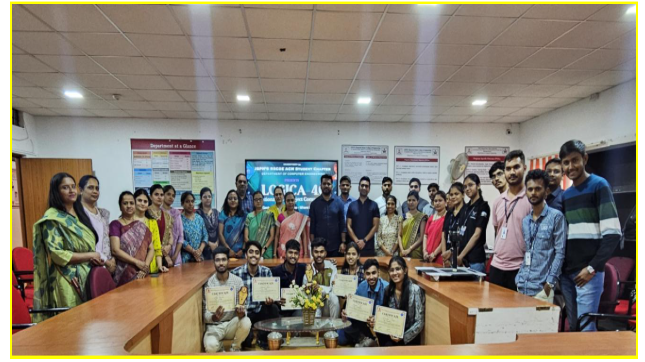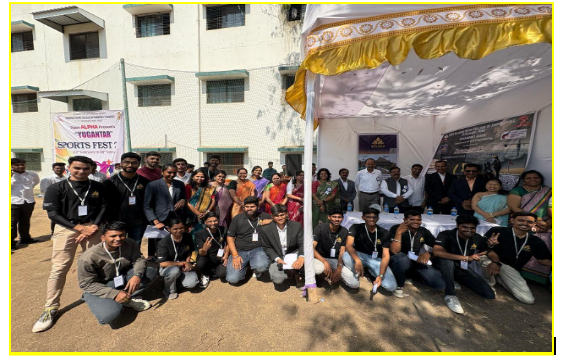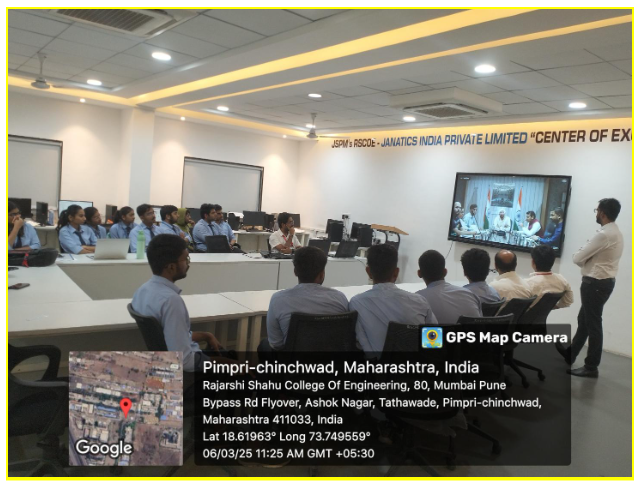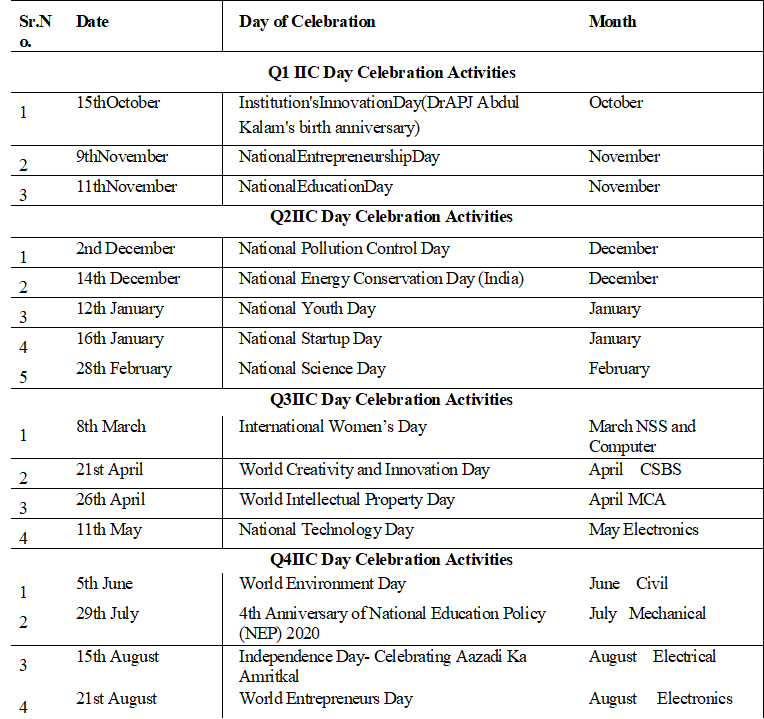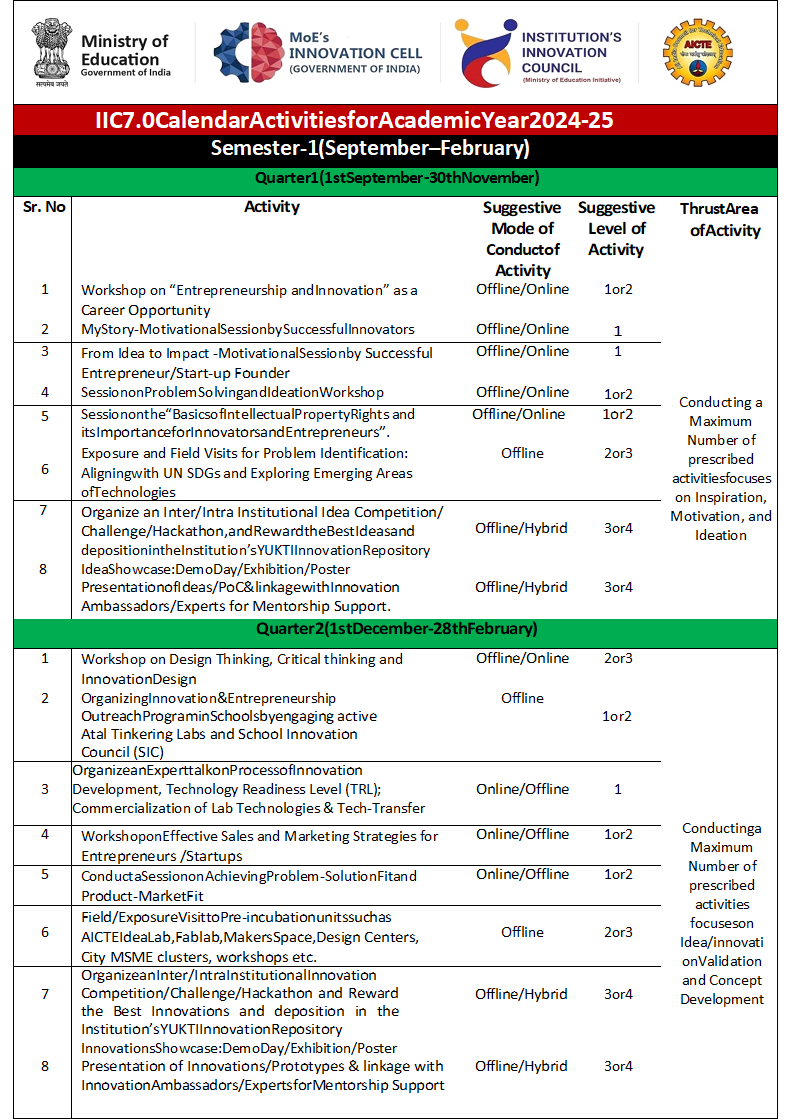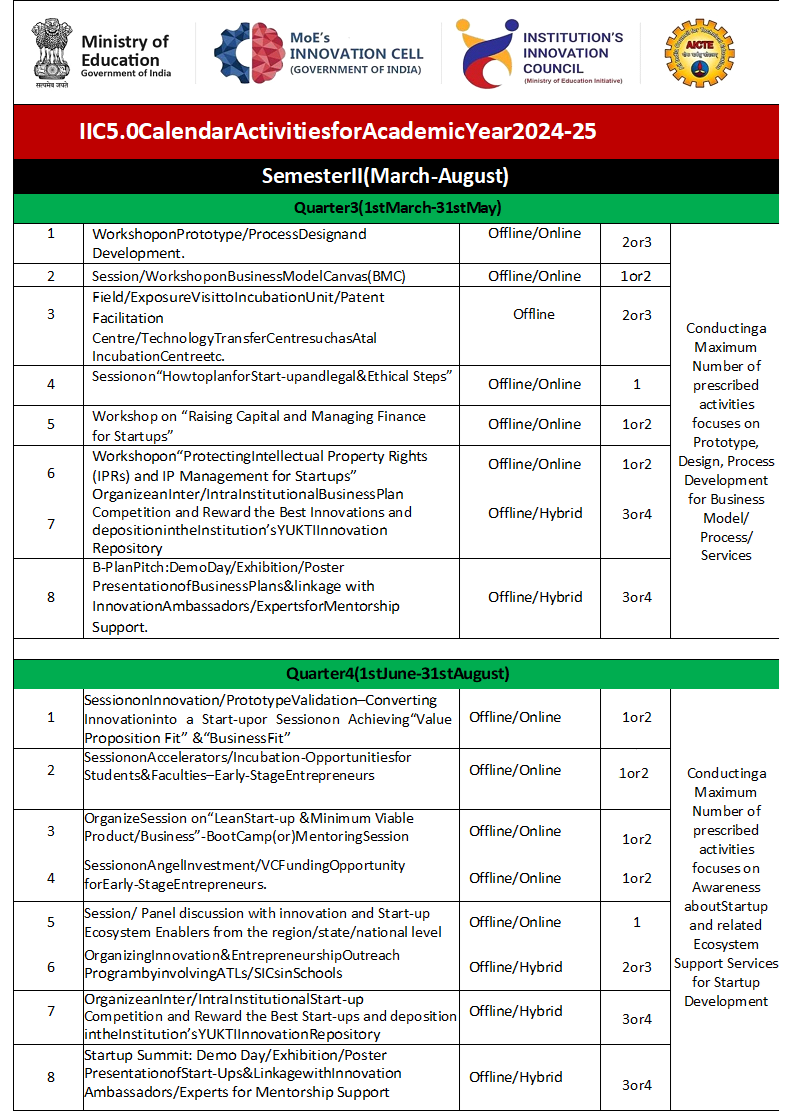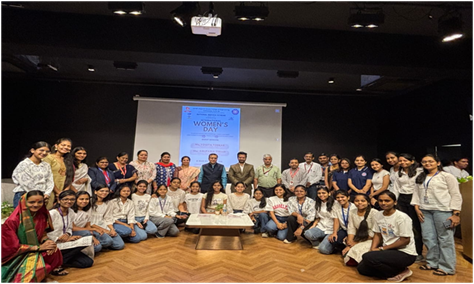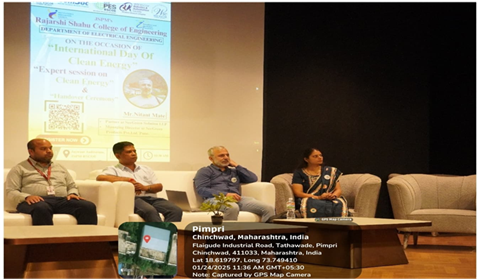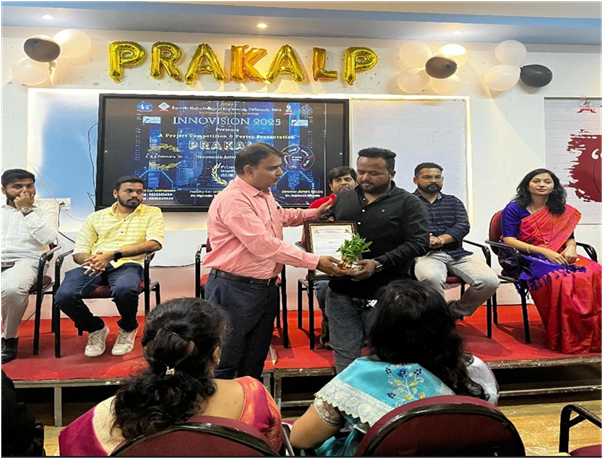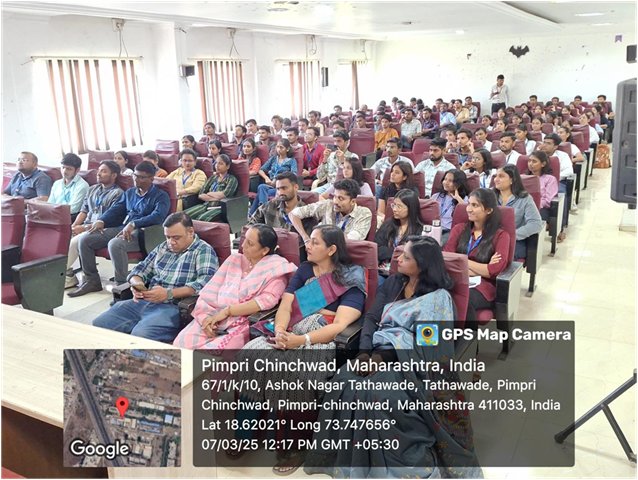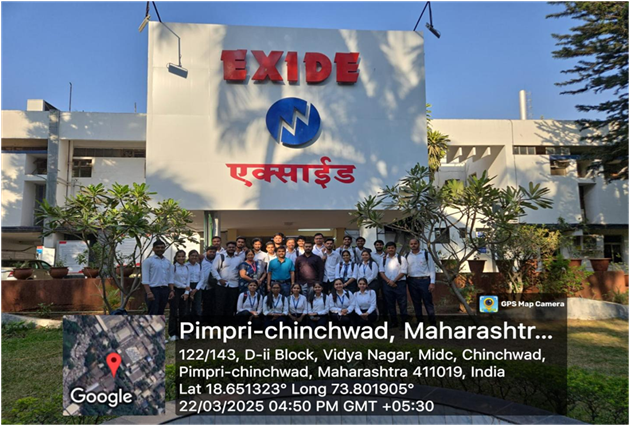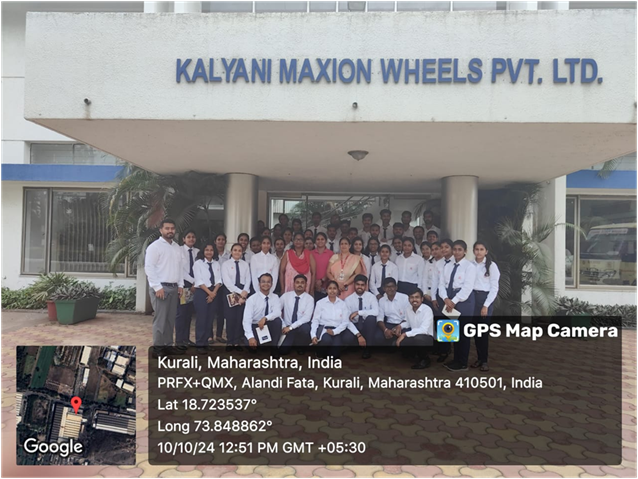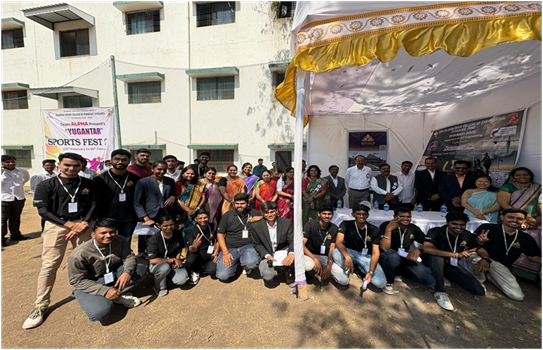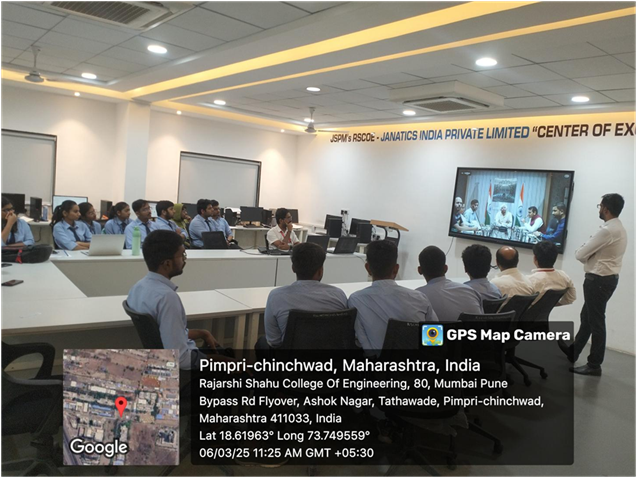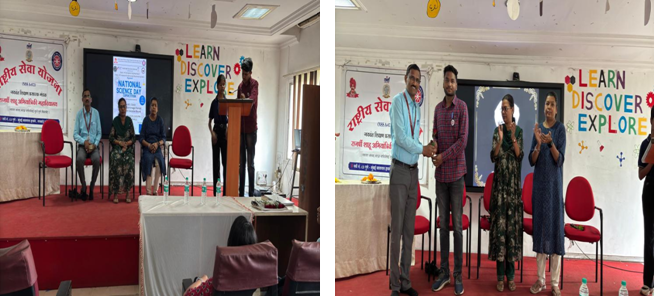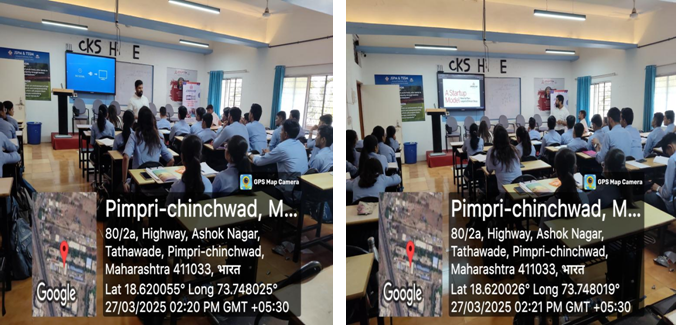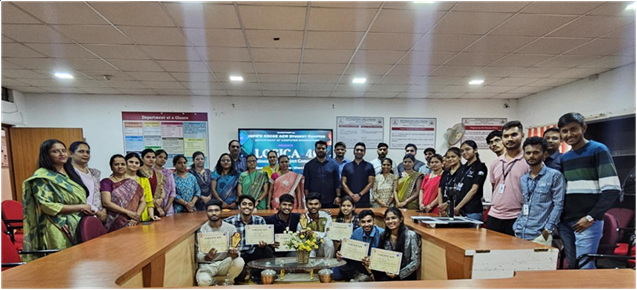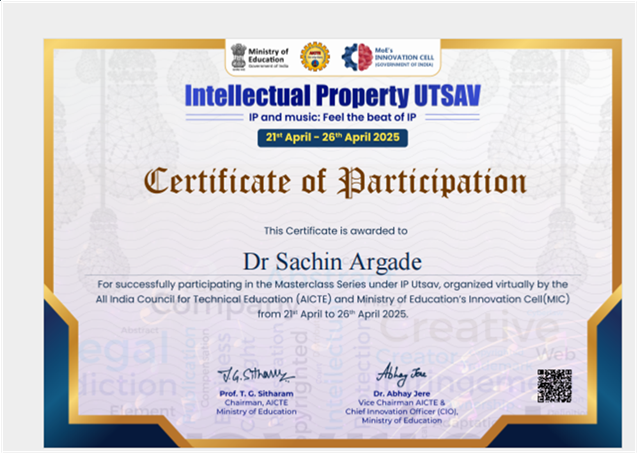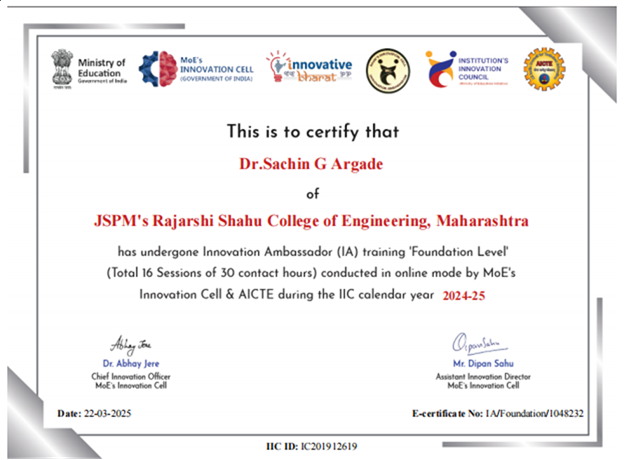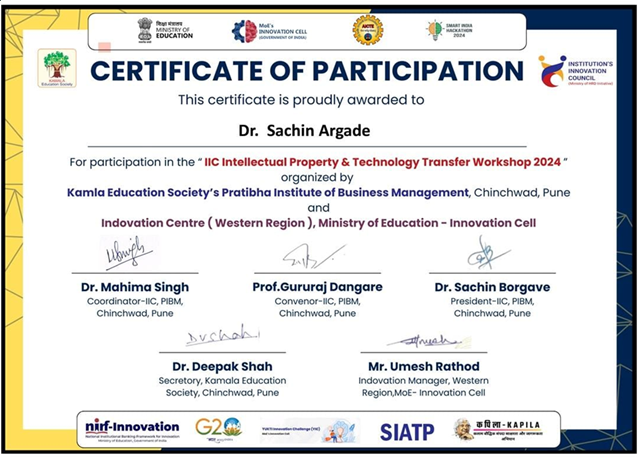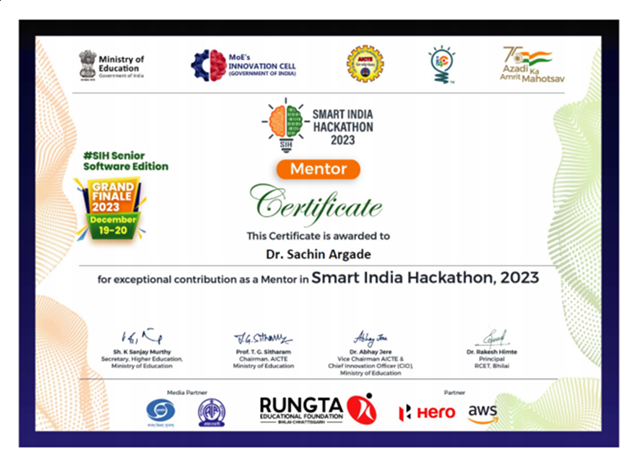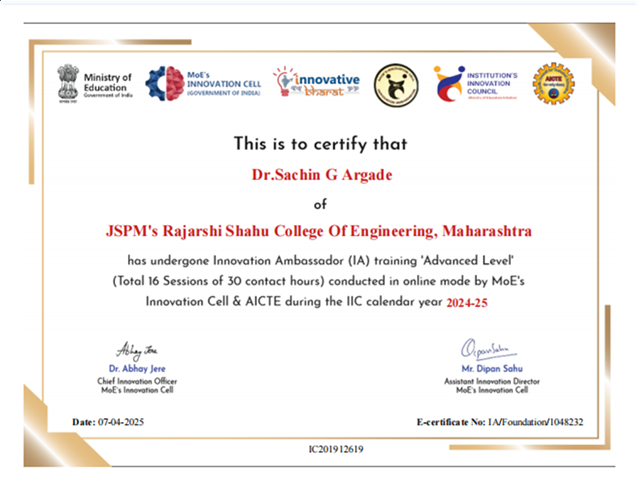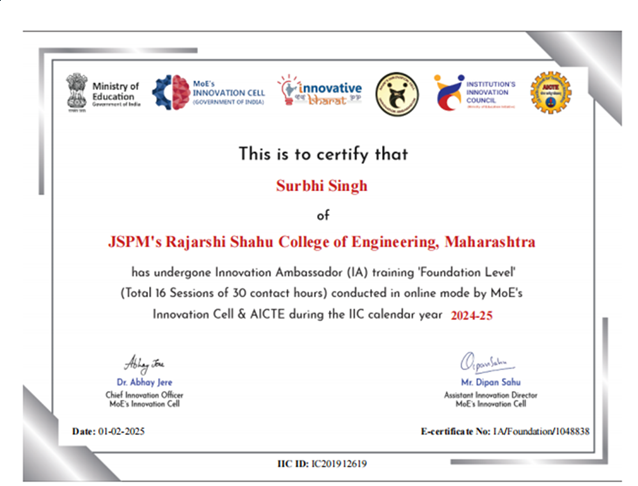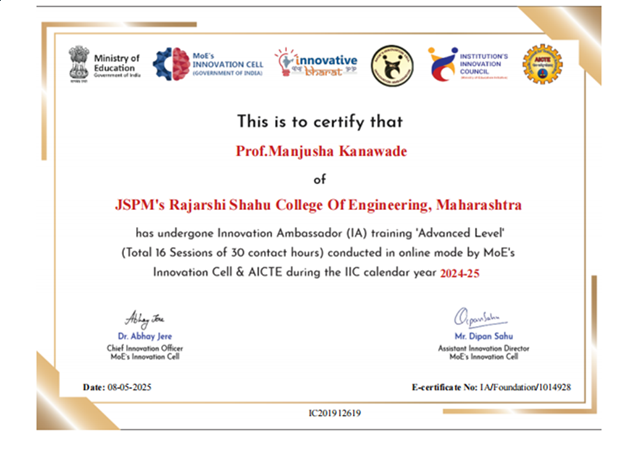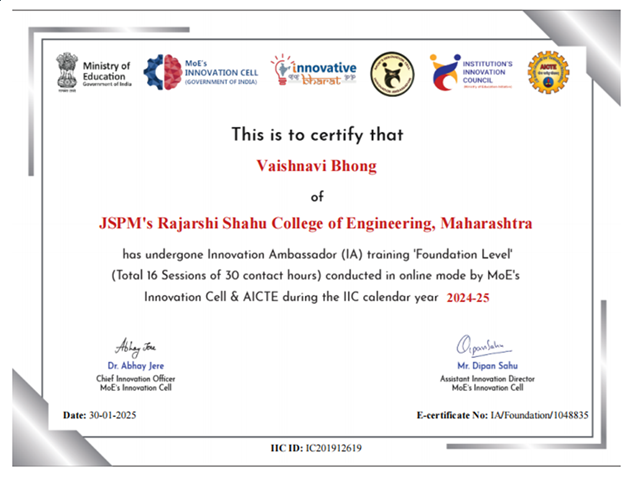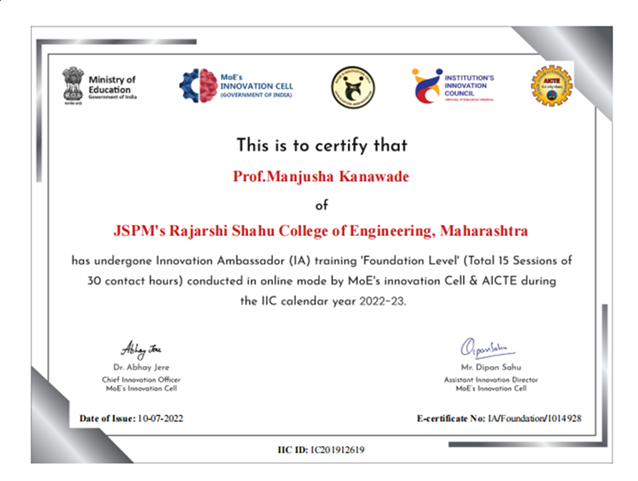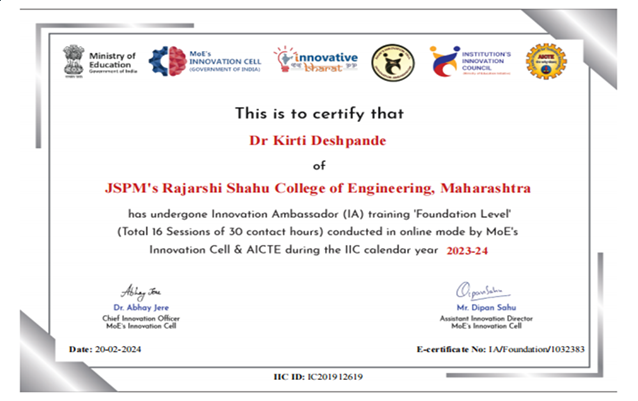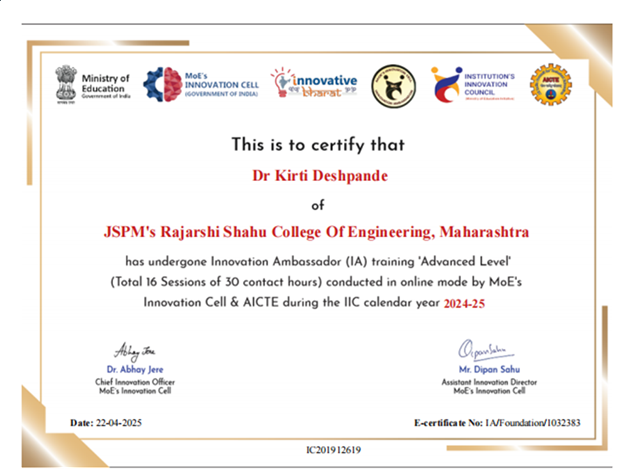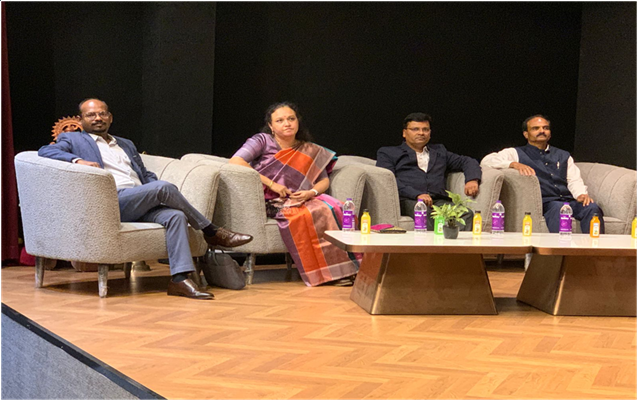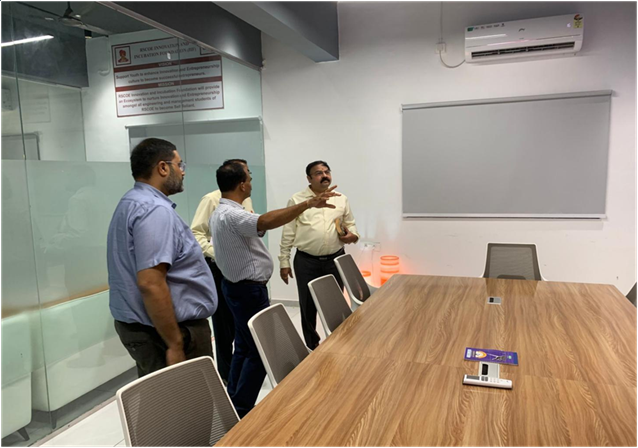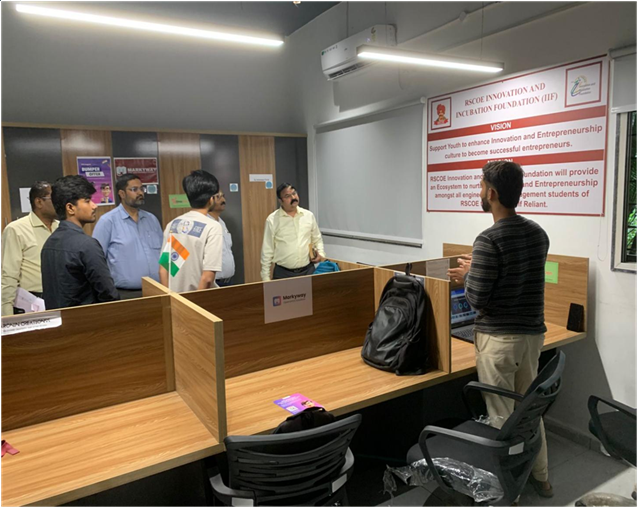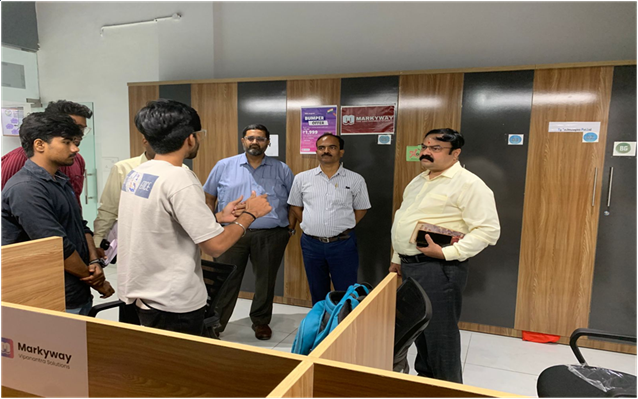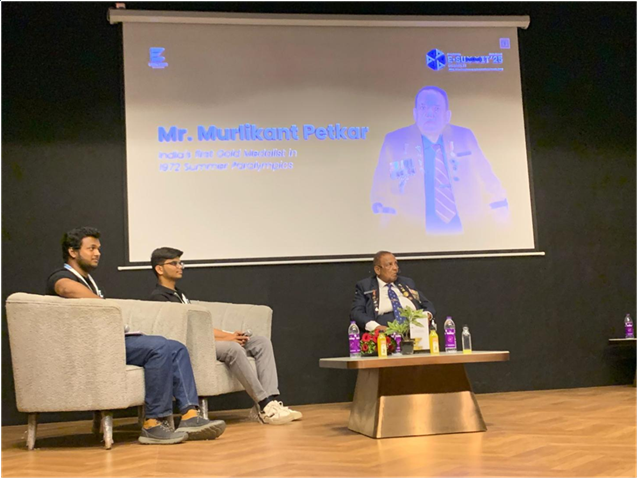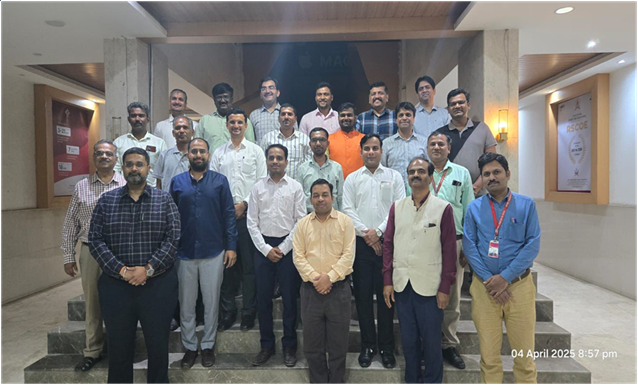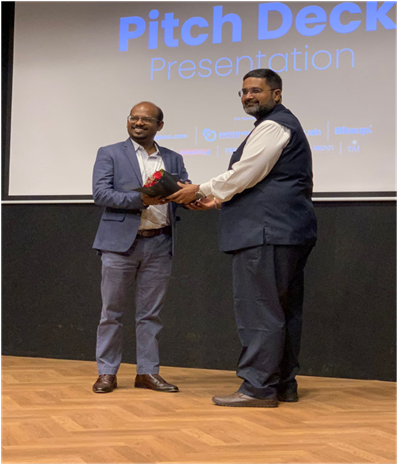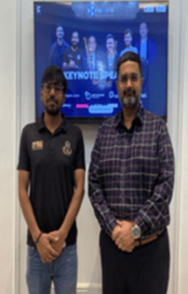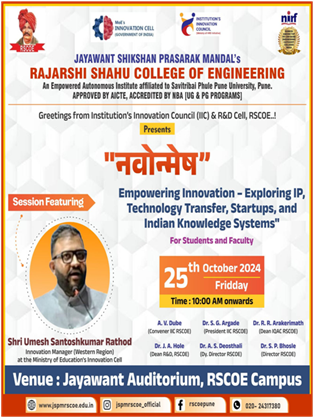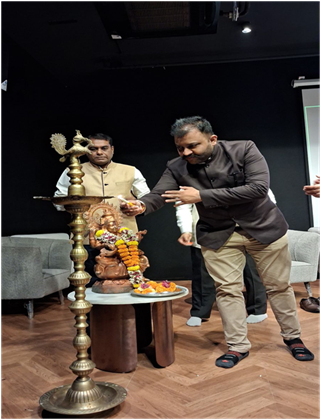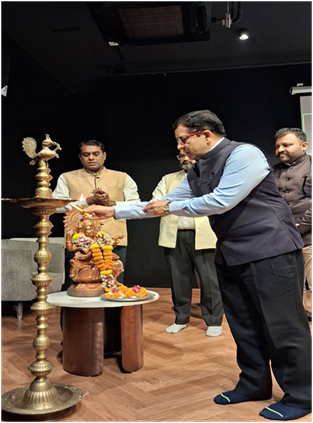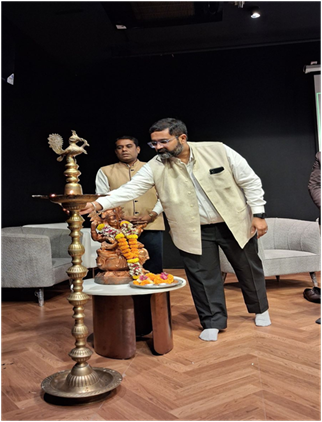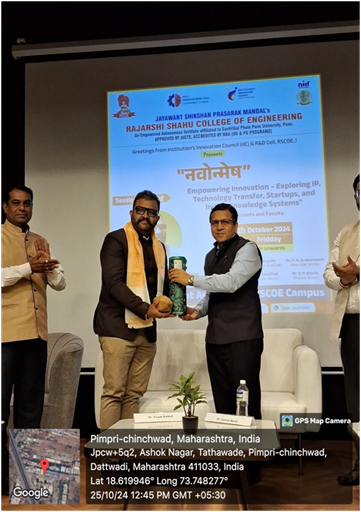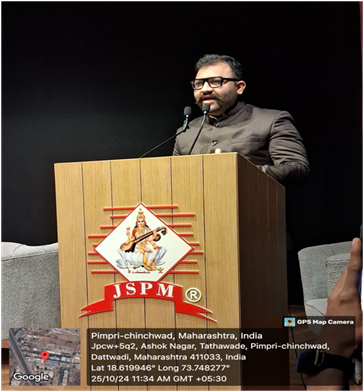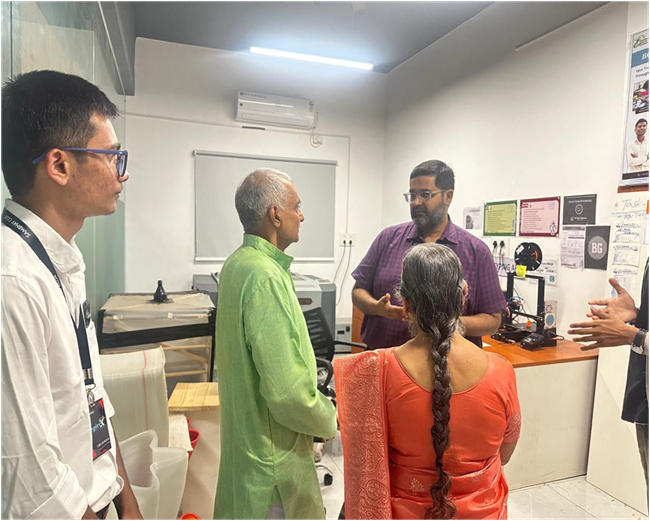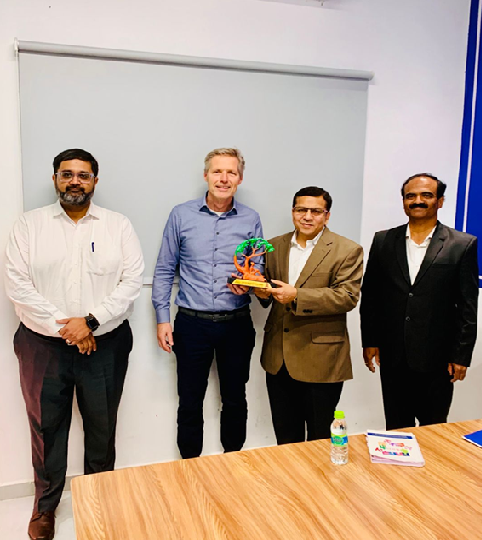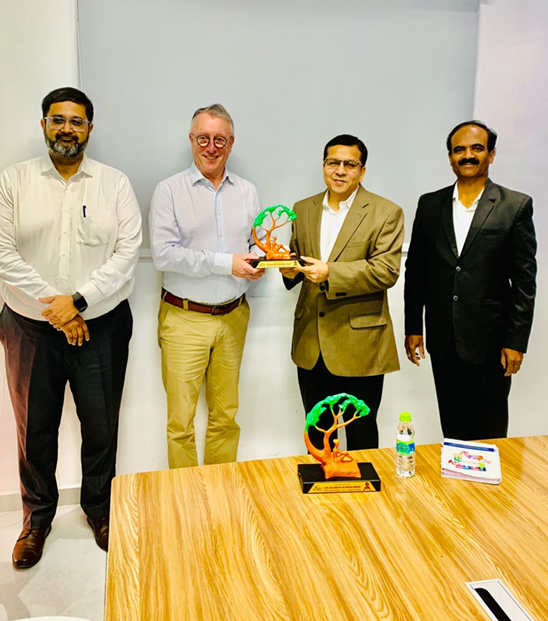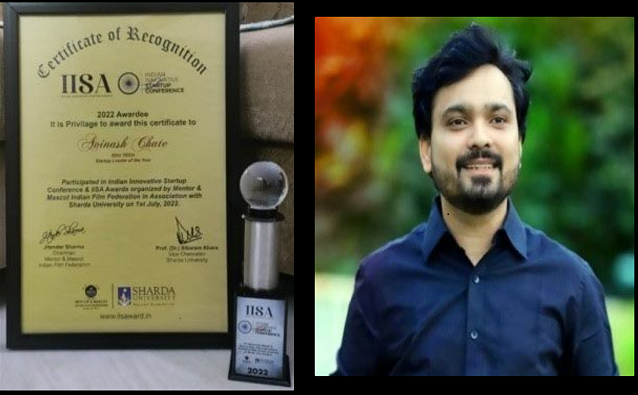

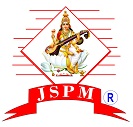
An Empowered Autonomous Institute Affiliated to Savitribai Phule Pune University,
Approved by AICTE,
Accredited by NBA (UG Programs), Accredited by NAAC With "A" Grade
MHRD-NIRF Rank:151-200
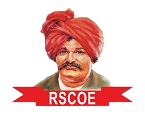
"To build a dynamic ecosystem that nurtures innovation, entrepreneurship, and research, enabling students and faculty to transform ideas into successful ventures and drive technological and economic growth."
"To foster a culture of innovation and entrepreneurship by providing mentorship, industry collaboration, and incubation support, empowering students and faculty to develop impactful solutions for real-world challenges."
In the year 2018, the Ministry of Education (MoE) through MoE’s Innovation Cell (MIC) launched the Institution’s Innovation Council (IIC) program in collaboration with AICTE for Higher Educational Institutions (HEIs) to systematically foster the culture of innovation and start-up ecosystem in education institutions.
The Institution’s Innovation Council (IIC) at RSCOE was established in the year 2019.
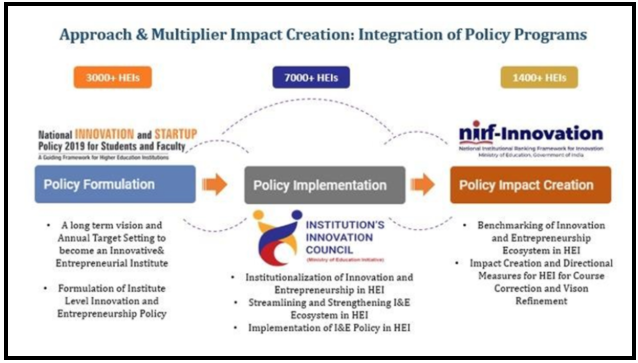
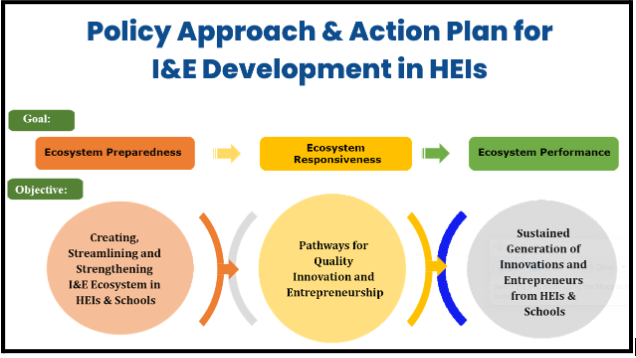
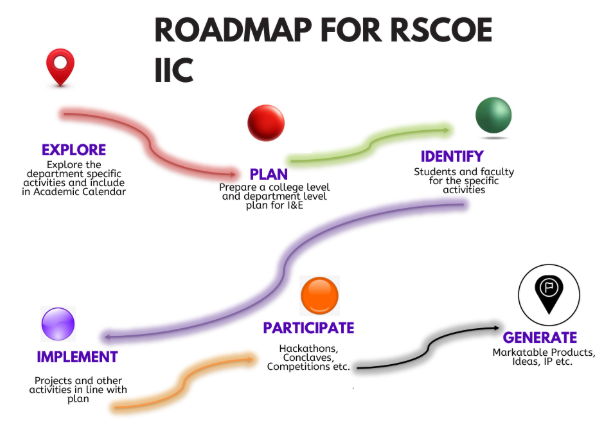
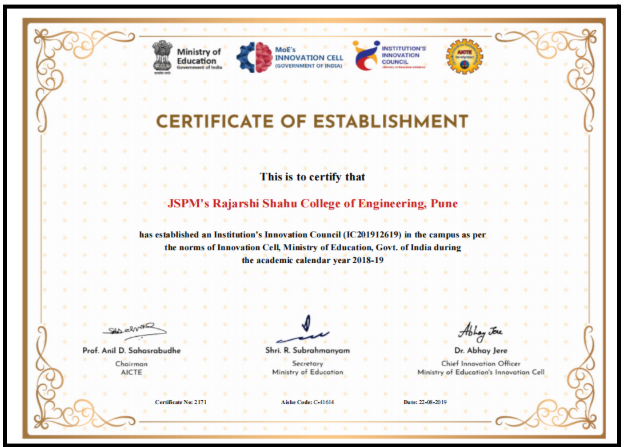
Certificate of Establishment
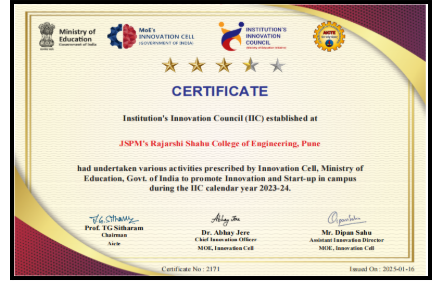
IIC rating certificate 2023-24
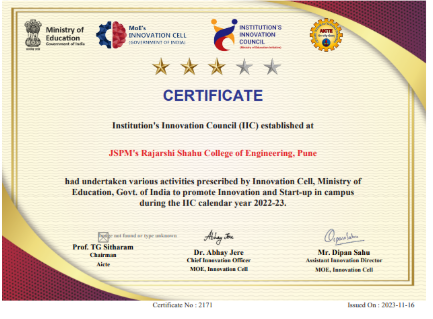
IIC rating certificate 2022-23
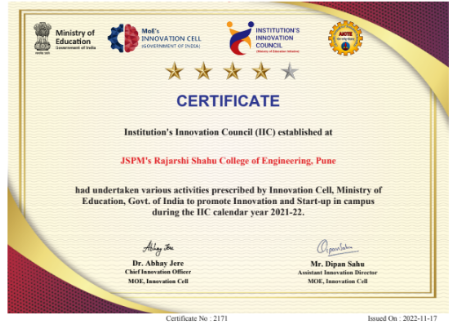
IIC rating certificate 2021-22
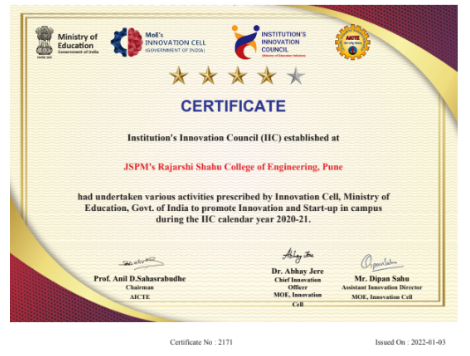
IIC rating certificate 2020-21
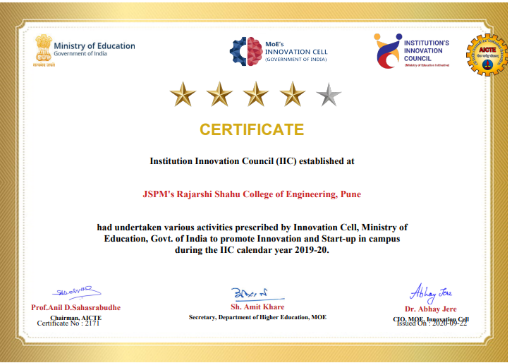
IIC rating certificate 2019-20
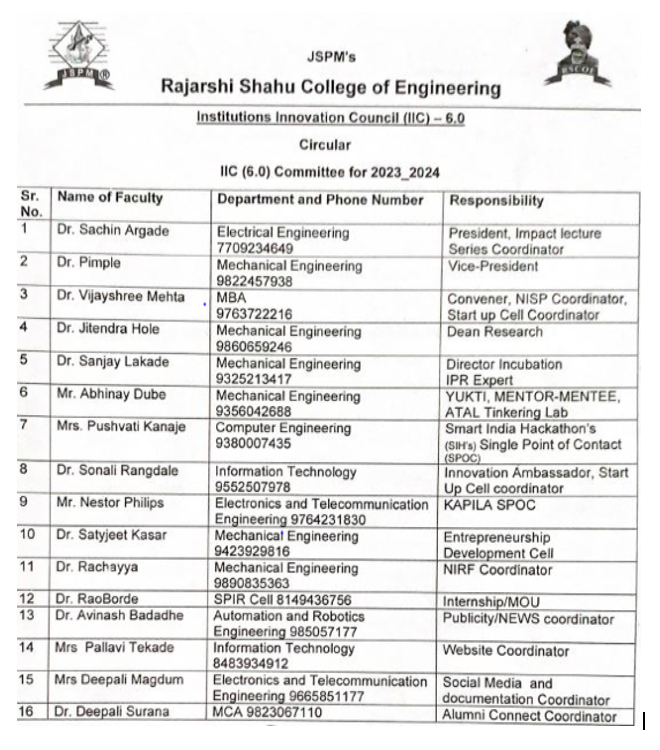








It gives me immense pride, as I introduce you to an entirely new approach of learning at RSCOE, Pune. We not just work diligently with our students to help them excel academically but also groom them to be Global Citizens. This is possible as RSCOE has been accorded Autonomy by UGC after careful review of its curricular aspects. As an autonomous institute, we are now empowered to provide contemporary curriculum relevant with industry requirements, at the same time flexible enough to fulfil diverse aspirations of engineering graduates. As an autonomous institute, RSCOE is now extremely "Student Centric" and offers flexibility of four tracks within each curriculum so as to fulfil aspirations of students
Each student is encouraged to explore their areas of interest and to develop their talent with passion. Being autonomous, RSCOE will be able to provide examination results within a week, that will provide meritorious students, sufficient time of 45 days for in-plant training, it also means students who were not able to perform to the expectation will be able to take "Re-examination" and prevent loss of academic year. Autonomy has also provided opportunity for students to have international experience with credit transfer under student
exchange programs with foreign universities. These foreign universities will help us to groom students to Be global Citizens. As part of regular academics, attention is given to each student to focus on their strengths and to develop their confidence. This would enable them to stand in good stead, once student graduates from our college, to encounter life's problems on their own.
We, at RSCOE strive to cultivate students who are not only successful in their personal and professional fields, but who take upon themselves the challenge to fetch science and technology to the doorsteps of the common man and to propel India as the leader in the emerging technologies. We believe is bringing your dreams in to reality. We at RSCOE, are excited to welcome all young students to experience the memorable and impressive voyage of a blend of learning to practice and applying the knowledge and skills, relevant to engineering.
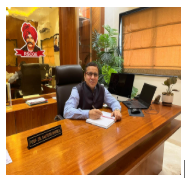
Dr. Santosh Bhosle
Director, RSCOE
As the President of the Institute’s Innovation Council at JSPM’s Rajarshi Shahu College of Engineering, I take great pride in sharing the remarkable strides our institute has made in fostering a culture of innovation, creativity, and entrepreneurship.
The IIC at RSCOE has been instrumental in nurturing young minds and empowering them to transform their ideas into impactful solutions. Aligned with the vision of the Ministry of Education’s Innovation Cell (MIC), our council consistently organizes a diverse range of innovation-centric activities such as idea competitions, workshops on design thinking, expert talks, prototype development programs, and IPR awareness sessions.
We have successfully created an environment where innovation is not just encouraged but celebrated. Our students are actively participating in national-level hackathons, startup expos, and entrepreneurship development programs, often bringing laurels to the institute. Through strong mentoring support and inter-departmental collaboration, we are enabling students to explore real-world problems and develop sustainable, tech-driven solutions.
Furthermore, our IIC has established productive linkages with industry experts, startups, and incubators, enriching the learning experience and enhancing the entrepreneurial readiness of our students. The council also ensures faculty engagement through regular training and FDPs, fostering a holistic culture of innovation across the campus.
Moving forward, our vision is to strengthen pre-incubation and incubation support, encourage patent filings, and promote more student-led ventures that can contribute to the nation's Atmanirbhar Bharat mission.
With continued support from our management, faculty, and the enthusiastic participation of our students, I am confident that the IIC at RSCOE will continue to thrive as a beacon of innovation and entrepreneurship.
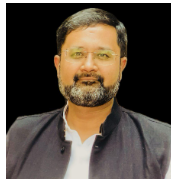
Dr. Sachin Argade
Assistant Professor, President -IIC





Felicitation of Dr.Vijayshri Mehtha at Open Data Challenge at PCSIC.

Project Exhibition.

Visit to ICCC, Smart City Mission.

Innovation Day Celebration.

IISA Award to Startup Founder Mr.Avinash Chate – ALUMNI Entrepreneur of RSCOE .

Felicitation of Dr.Vijayshri Mehtha by PCSIC for contribution in Entrepreneurial Education.

MoU with PCSIC Pimpri Chinchwad Startup Incubation Center.

Participation in Startup Conclave at PCSIC and Auto Cluster , Pune.

ALUMNI Entrepreneurs Meet.

Kaun Banega Entrepreneur.











Webinar on Patent Drafting Hacks. Speaker : Mrs. Pallavi Kadam. Date : 12-02-2022.

Webinar on Atmanirbhar Bharat under IPR Cell . Speaker : Dr. Sanjay Lakade. Date : 11-01-2022


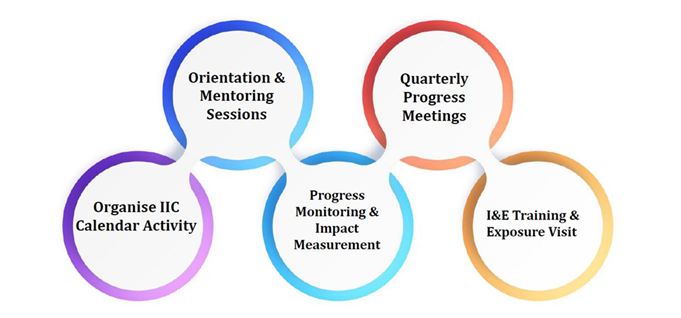
• Facilitate knowledge transfer between high-performing and developing IIC institutions.
• Enhance innovation capabilities within mentee institutions.
• Develop leadership skills amongst mentees.
• Foster collaboration and networking opportunities.
• Criteria for identifying mentor institutions (high IIC rating, proven track record)
• Criteria for selecting mentee institutions (areas needing improvement, commitment to growth)
• Matching process (consider institutional needs, expertise areas)
• Provide guidance on innovation projects and initiatives
• Share best practices and case studies
• Offer feedback on mentee's progress and development areas
• Facilitate access to resources and networks
Actively engage in mentoring sessions, clearly communicate needs and challenges, and Implement feedback and learnings from mentor.
Frequency of meetings
Meeting agenda (project updates, discussion of challenges, goal setting)
Communication channels (email, video calls)
Regular check-ins to assess progress
Feedback mechanisms from both mentor and mentee
Post-program evaluation to measure impact
Charts and graphs to illustrate program impact
Success stories from previous mentor-mentee pairings
Infographics to highlight key program elements
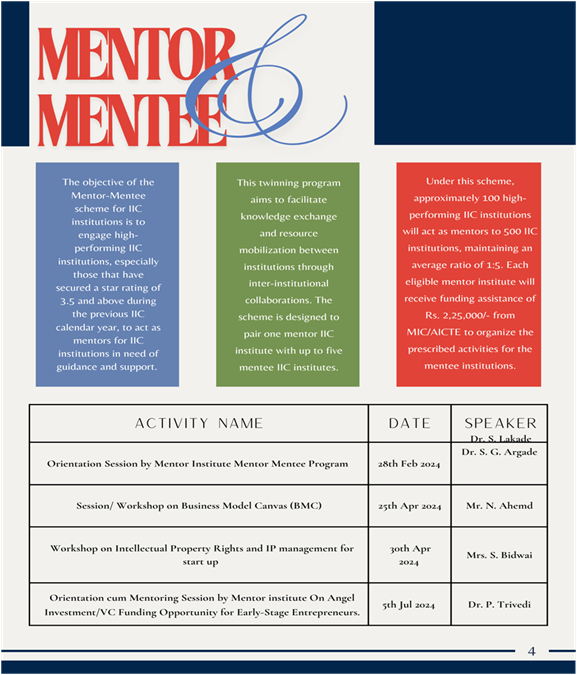
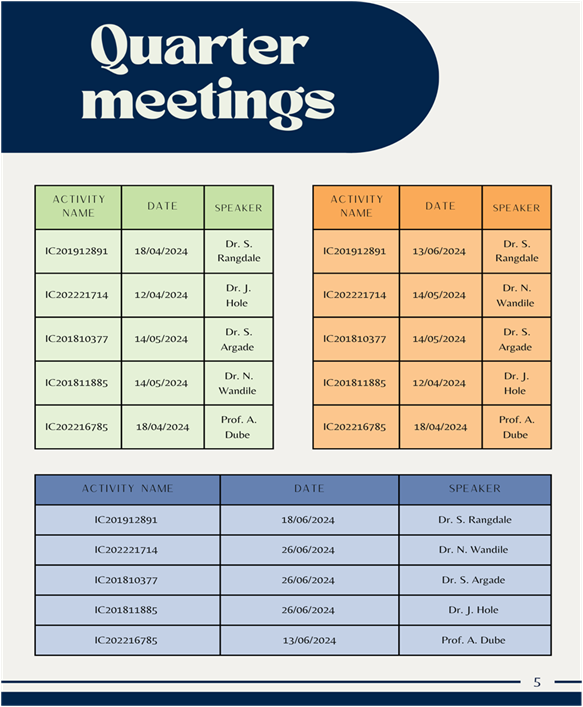
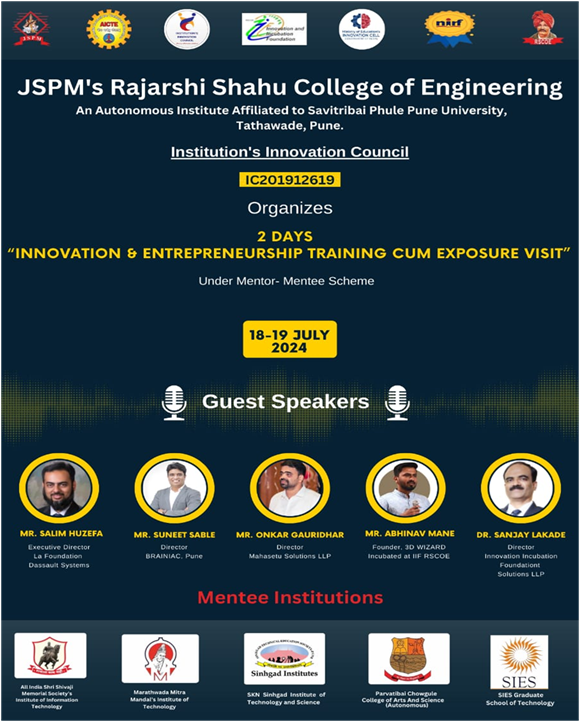
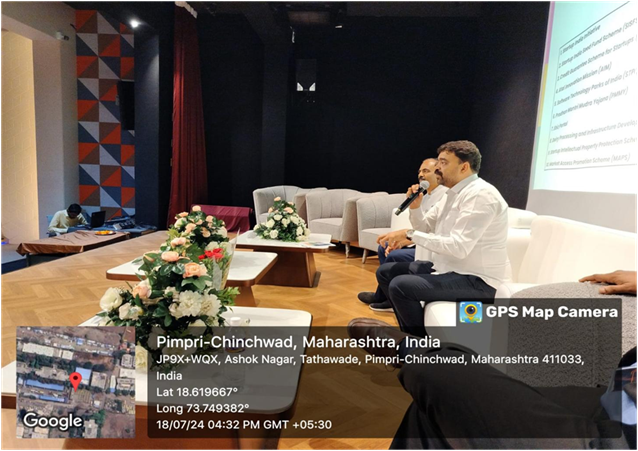
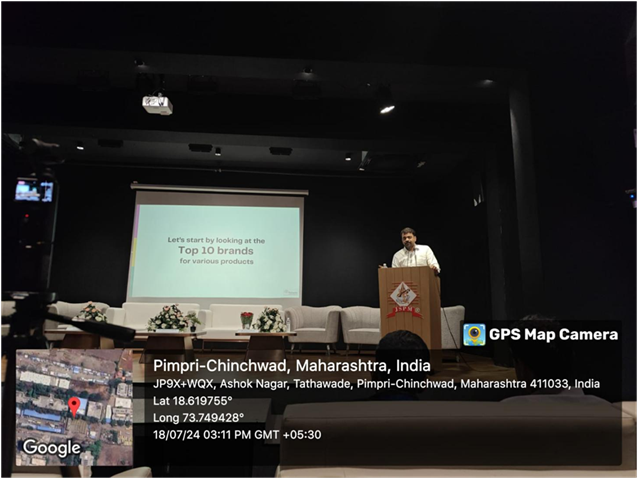
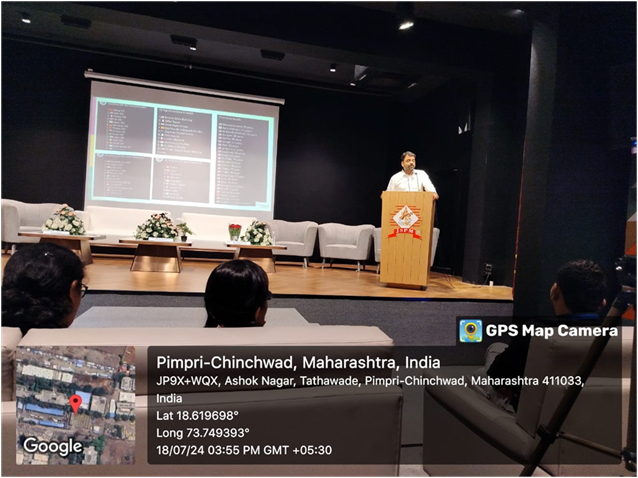
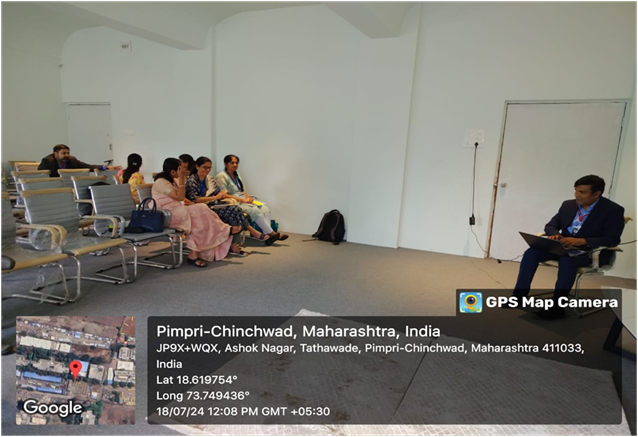
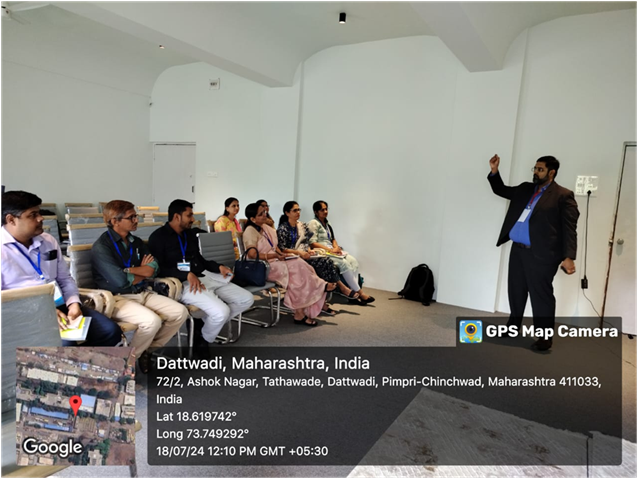
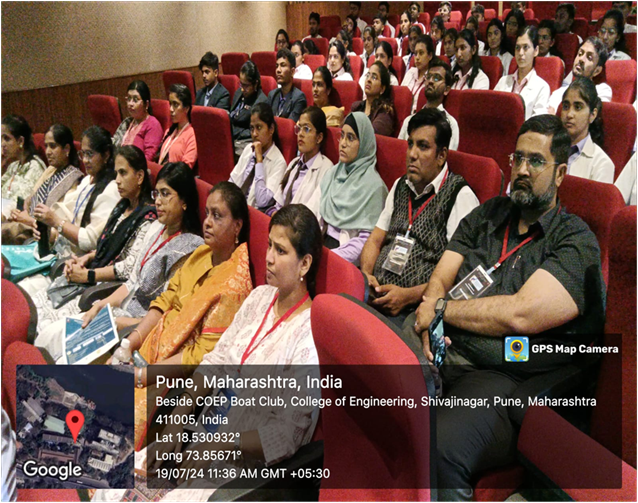
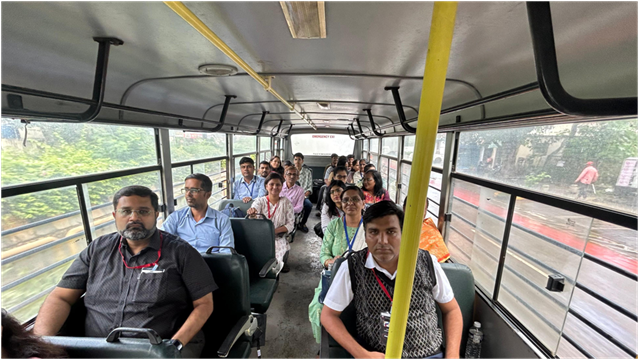
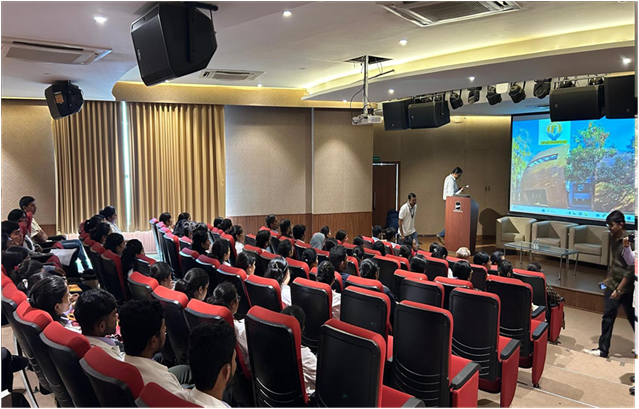
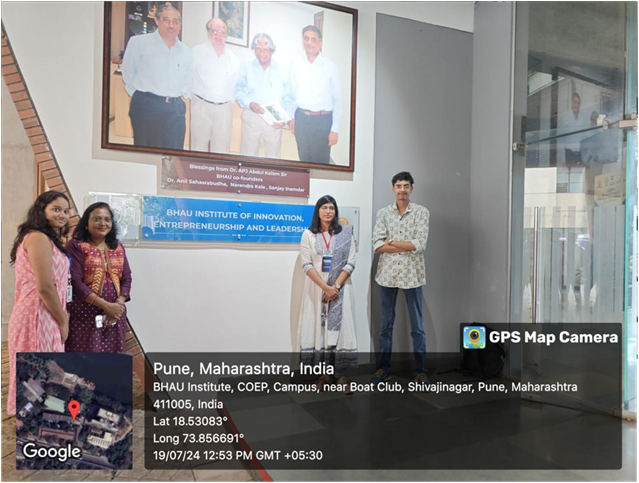
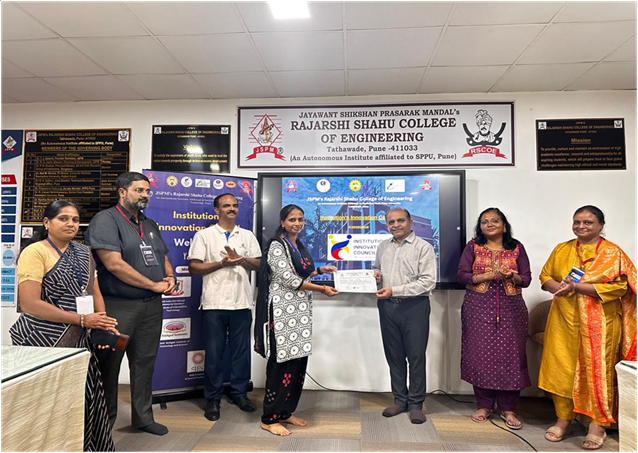
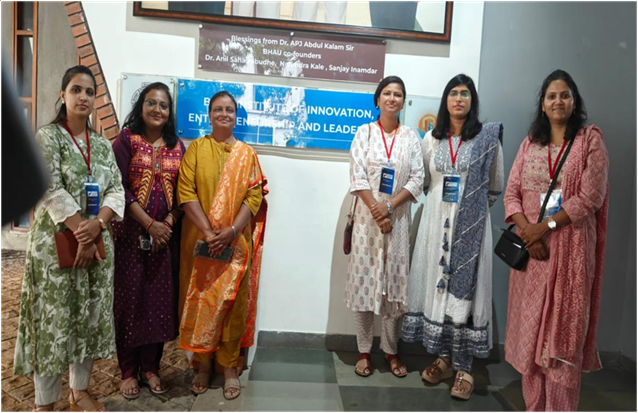
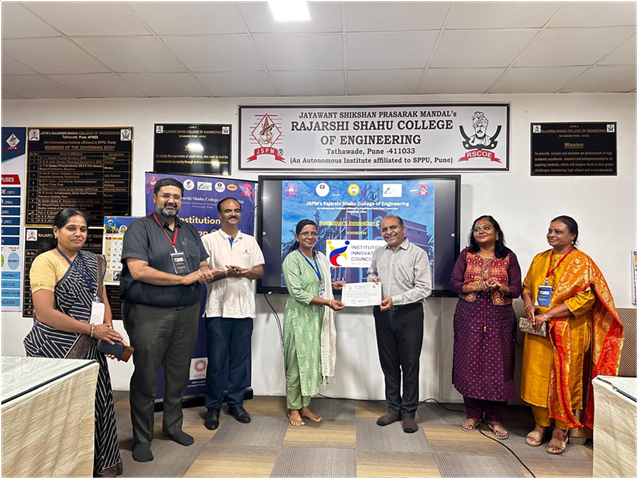
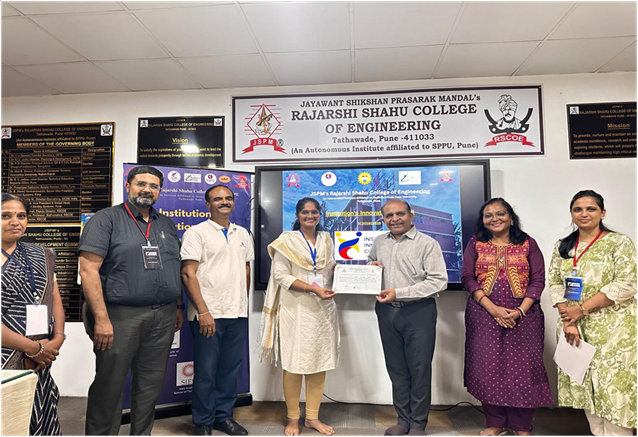
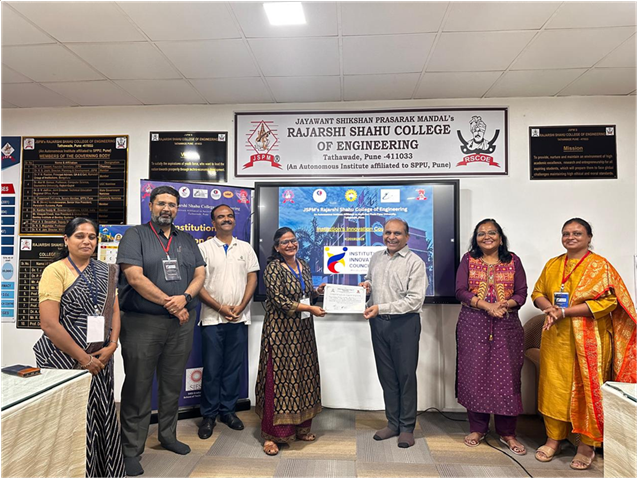
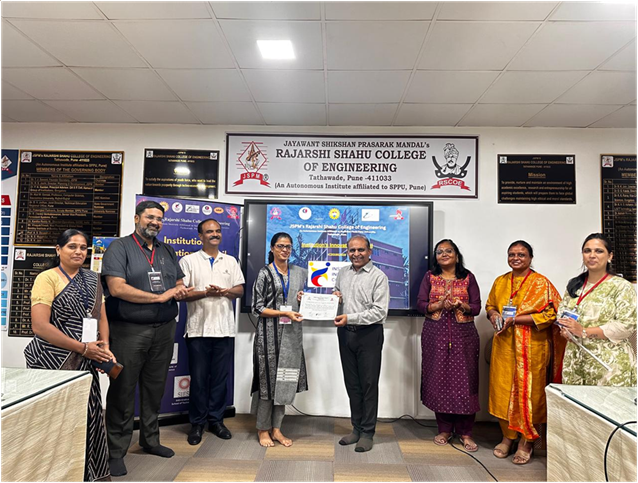
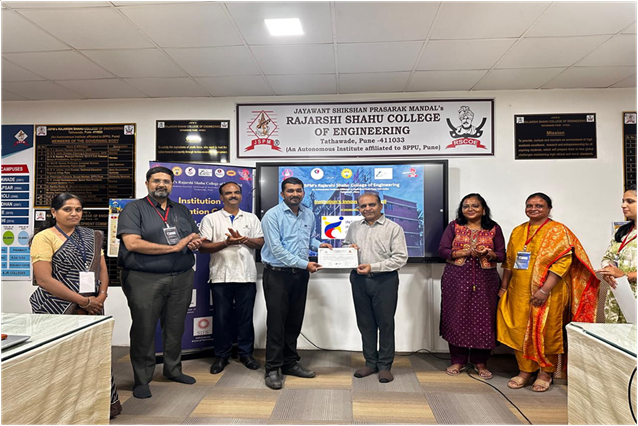
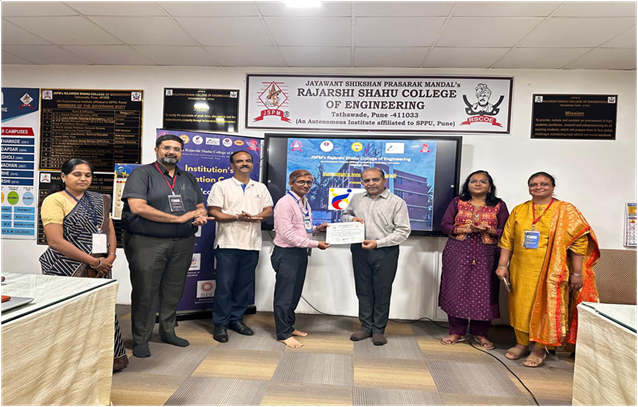
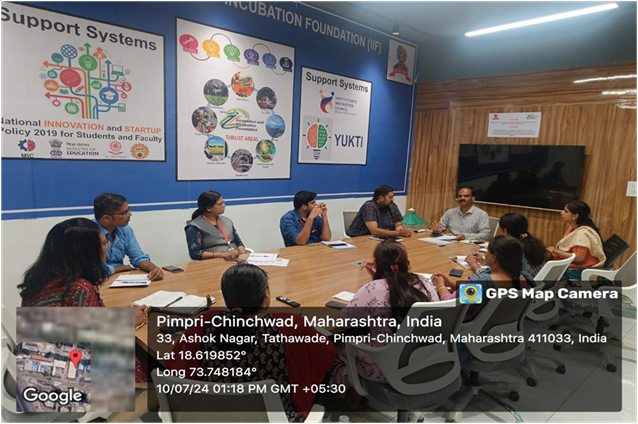
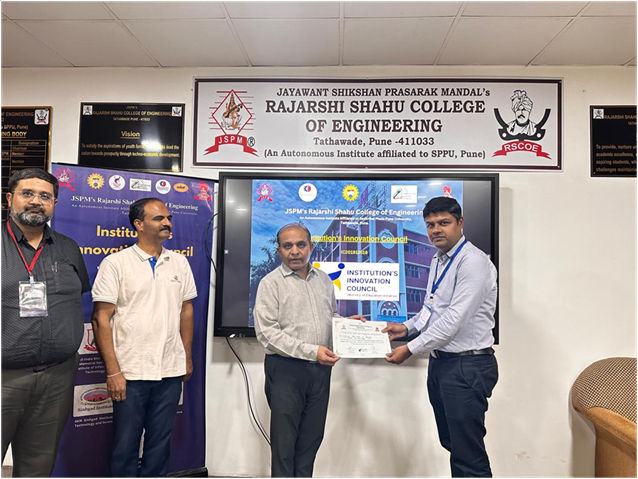
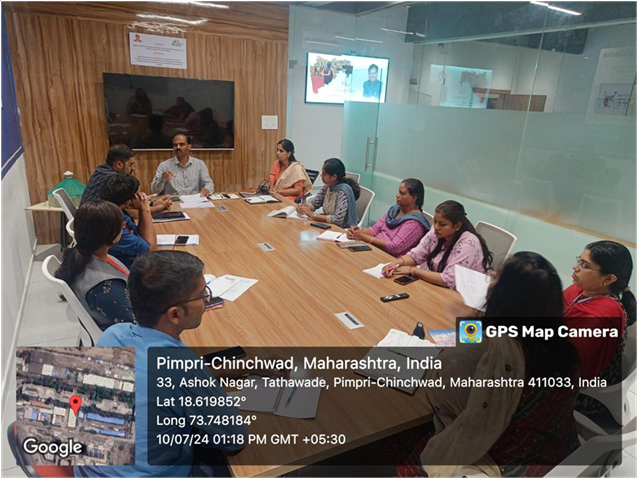

An Innovation Ambassador's primary role is to actively promote and cultivate a culture of innovation within an organization by identifying new ideas, engaging stakeholders, championing innovative projects,
and educating others about the importance of innovation, essentially acting as a bridge between leadership
and frontline innovators to drive positive change.
• Innovation Ambassador has to complete the basic and advanced both trainings by Ministry of Education. After completing the advanced training, ambassador has to deliver at least 4 lectures in the institute he/she is associated with and at least 4 lectures in the institutes other than institutes he or she is associated.
• President can nominate up to 40 Faculty, student members for these trainings.
• While nominating faculty, all IIC department coordinators and central core team should undergo the training, min of 20 faculty members.
• While nominating students, president should nominate at least 10 Students of Entrepreneurship development cell (E D cell) students
• While nominating advanced level training, those faculty members along with E D cell students who have completed basic training should be nominated. (Max up to 10)
| Sr. No. | Name of Faculty | Year | IA Course |
|---|---|---|---|
| ----- 2024-25 ----- | |||
| 1 | Vrushabh Bawankar | 2024-25 | Foundation Level |
| 2 | Ms. Rajeshri Prakash Mane | 2024-25 | Foundation Level |
| 3 | Swapnil Shivram Vyavahare | 2024-25 | Foundation Level |
| 4 | Swapnil Shivram Vyavahare | 2024-25 | Advance Level |
| 5 | Dr. Sachin G Argade | 2024-25 | Advance Level |
| 6 | Surbhi Singh | 2024-25 | Foundation Level |
| 7 | Deepali Magdum | 2024-25 | Advance Level |
| ----- 2022-23 ----- | |||
| 8 | Prof. Sonali P Rangdale | 2022-23 | Foundation Level |
| 9 | Raj Bhosale | 2022-23 | Foundation Level |
| 10 | Pushpavati Kanaje | 2022-23 | Foundation Level |
| 11 | Prof. Rushali A. Deshmukh | 2022-23 | Foundation Level |
| 12 | Manjusha Amol Kanawade | 2022-23 | Foundation Level |
| 13 | Dr Harsha Anantwar | 2022-23 | Foundation Level |
| 14 | Dr. Preeti Gajghate | 2022-23 | Foundation Level |
| 15 | Dr Meenakshi Duggal | 2022-23 | Foundation Level |
| 16 | Dr. Nilesh B. Korade | 2022-23 | Foundation Level |
| 17 | Deepali Magdum | 2022-23 | Foundation Level |
| ----- 2021-22 ----- | |||
| 18 | Avinash Golande | 2021-22 | Foundation Level |
| 19 | Manjusha Amol Kanawade | 2021-22 | Foundation Level |
| 20 | Dr. Bhagyashri Sunil Deshpande | 2021-22 | Foundation Level |
The institute actively participates in the YUKTI – National Innovation Repository, which is an initiative by MIC to track and support innovative projects. The key objectives of this policy include:
• The IIC core team will be responsible for monitoring YUKTI registrations and reporting progress periodically.
• YUKTI Coordinator along with IIC president should go to every department.
• With the help of Head of department, IIC department coordinator and department project coordinator, YUKTI Coordinator along with IIC president should go through list of projects and talk to project groups one by one.
• The projects which has potential to be converted to the prototype and then in to start up should be entered in the YUKTI portal.
• A funding request to management for such selected projects should be drafted by YUKTI coordinator along with that respective department coordinator.
• Encouraging students and faculty to register their innovative ideas on the YUKTI portal.
• Ensuring proper documentation and evaluation of innovative projects.
• Providing necessary mentorship and incubation support to projects listed in YUKTI.
• Facilitating collaborations with industries and investors for commercialization of innovations.

Smart India Hackathon (SIH) is a premier nationwide initiative designed to engage students in solving some of the most pressing challenges faced in everyday life. Launched to foster a culture of innovation and practical problem-solving, SIH provides a dynamic platform for students to develop and showcase their creative solutions to real-world problems. By encouraging participants to think critically and innovatively, the hackathon aims to bridge the gap between academic knowledge and practical application.
Since its inception, SIH has garnered significant success in promoting out-of-the-box thinking among young minds, particularly engineering students from across India. Each edition has built on the previous one, refining its approach and expanding its impact. The hackathon not only offers students an opportunity to showcase their skills but also encourages collaboration with industry experts, government agencies, and other stakeholders.
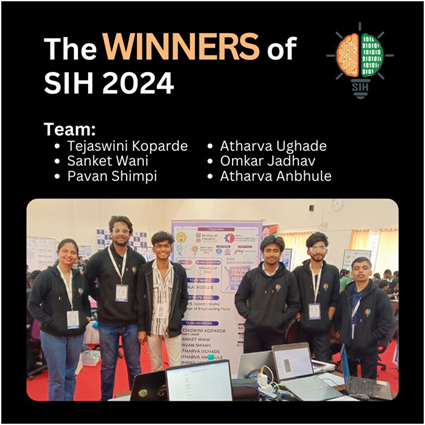
Students explored projects like hanging cranes, golf cricket robots, and 3D printing. Activities included lectures on prototyping, design thinking, group problem-solving, and idea pitching. Students demonstrated projects like Train Alarm Alert and Mobile-Controlled Shopping Cart. The training culminated with motivation for the Smart India Hackathon, hands-on project creation, and an "Innovation Awards" ceremony, celebrating students' creativity and progress.
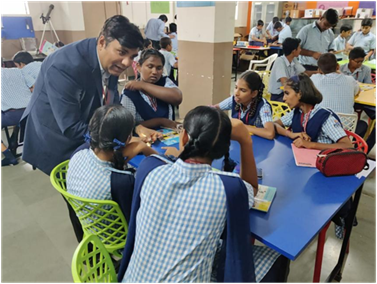
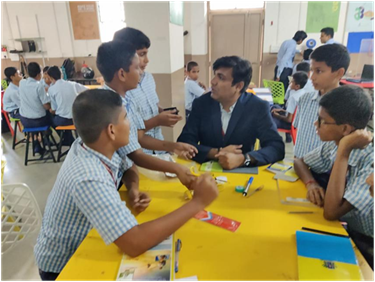
The Atal Tinkering Lab training at Shri Mhalsakant Vidyalaya Akurdi, from 18-01- 2025, fostered innovation among 8th to 10th-grade students. Led by Profs. A. V. Dube and S. M. Kale from JSPM Rajarshi Shahu College of Engineering, the sessions encouraged design thinking and real- world problem-solving. This initiative nurtured a culture of innovation and entrepreneurship

